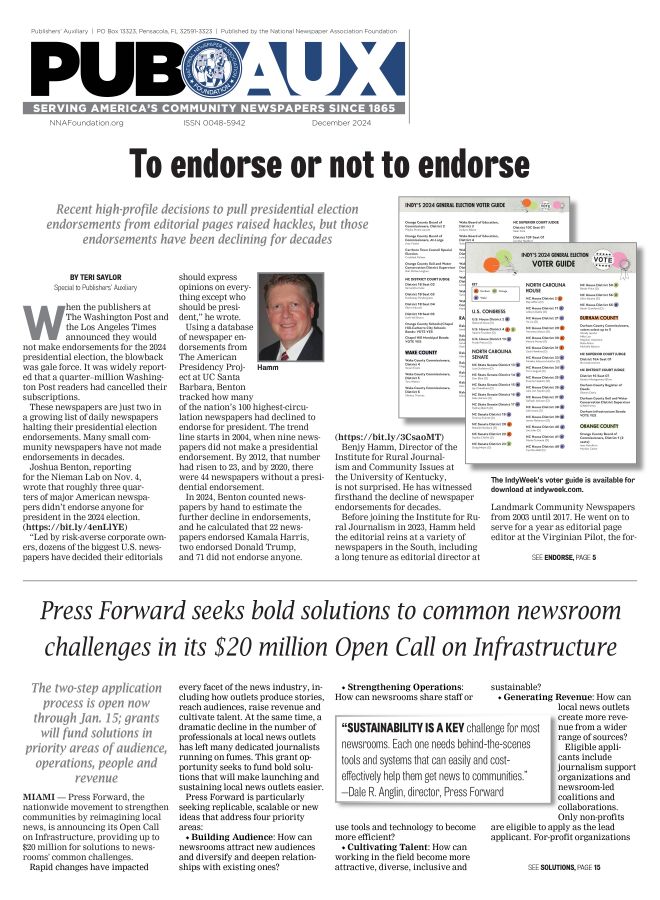#JeSuisCharlie — another way to say 'Freedom'
Jan 7, 2015
Editors: Here's a CORRECTED special edition of "Inside the First Amendment" on the Charlie Hebdo attack in Paris. The weekly IFA column, written by Charles C. Haynes, will be sent Thursday, the regular distribution day.
By Gene Policinski
Inside the First Amendment
Cowards!
There's no other word for the armed gunmen who killed 12 people in the attack Wednesday on the Parisian offices of the satirical newspaper Charlie Hebdo.
Once again, terrorists ignore the lessons of history: individuals may be silenced by violence from time to time, but ideas live on and ultimately will find their way to the world.
Once again, innocent lives are lost in the futile attempt to force one point of view onto others, or to prevent other points of view from being heard. Beyond the incident itself, this attack on the offices and staff of Charlie Weekly(English translation), is the latest example of the 21st century's signature battle — one between tyranny and freedom of expression.
Whether it is reflected in ISIS beheadings of journalists in the Middle East, North Korean cyber-threats over a movie, or this cowardly massacre, the lines in this fight are clear.
On one side, those who would limit freedom of press and speech in an attempt to control thought, or to accommodate the lowest common denominator consideration — Will it offend anyone? On the other side, the high principles that free expression empowers humanity to find the best solutions to common problems, and that the best and most effective response to speech you don't like is more speech, not less.
In our increasingly interconnected world, the collision of those ideas is taking place more often than ever. Unpopular, unpleasant or even repugnant concepts, images or cartoons might never have offended many around the world in an earlier time, simply by reason of not being seen or heard.
The World Wide Web not only makes such "practical obscurity" impossible today, it provides near-instantaneous examples of the futility of trying to control free expression.
According to news reports, within hours of learning of the attack, there were expressions of support, sympathy and outrage across social media. The hashtag #JeSuisCharlie (“I am Charlie) within hours showed nearly 200,000 tweets — and more than 1 million tweets had been posted at #CharlieHebdo discussing the massacre by just mid-morning in the United States.
MSNBC reported that "many supporters also shared graphics and memes they had created to show their support, some using the French flag, some depicting images of guns next to pencils, many saying 'Je Suis Charlie,' and some proclaiming 'Liberte expression,' which means freedom of expression."
So within hours of the senseless slaughter, millions around the globe who had never read Charlie Weekly were now aware of its work — and were exposed to the very content, satirical articles and cartoons on Islam, that apparently so offended the attackers. So much for controlling ideas or limiting free expression.
Ironically, such violence directed at journalists, authors and others is recognition that free expression and the marketplace of ideas — enshrined in the U.S. in the First Amendment — is a powerful weapon against tyranny.
An earlier generation of dictators learned during the Cold War that, even under the most repressive of regimes, there is an unstoppable yearning for freedom of expression and faith. More recently, from Hong Kong protests to the Middle East's "Arab Spring," the power and potential of free voices have been on the march.
In reaction to the Paris killings, the British magazine spiked — like Charlie Hebdo, a publication marked by free thought, irreverence for authority and defense of free expression — said that "The best, most civilised response to this barbaric act is to promise that we will defend freedom of speech every time it is threatened, stop kowtowing to the offended, and stand up to every mob, campaign group, thug and gunman that think they have the right to silence others."
For more than 220 years, in the U.S., the 45 words of the First Amendment have defined the nation's core freedoms of religion, speech, press, assembly and petition.
We now have another few words that will serve as a global means of declaring those freedoms: #JeSuisCharlie.
Gene Policinski is chief operating officer of the Newseum Institute and senior vice president of the Institute’s First Amendment Center. He can be reached at gpolicinski@newseum.org.







